Digital Technology
Subject: Science

Overview
Digital technology has significantly improved the quality of information and technology, modernizing digital media, TV, internet services, and telephones. There are both positive and negative consequences to using digital technology. Digital citizenship, or the equal right to use and actively engage in the internet, contributes to a better internet community. Online reputation management is crucial, as it demonstrates the veracity and legitimacy of an individual's profile and the legitimacy of an organization's presence on the internet. Digital well-being is crucial for maintaining a balanced online and offline life, promoting mental, physical, social, and emotional health. Creating audio and audio-visual materials can be done using various tools, such as microphones, cameras, and video editing programs. It is essential to exercise caution when using the internet for educational resources and to be mindful of the potential consequences of digital technology use.
Influence of Digital Technology on the Development of Information and Technology
Along with the expanding use of digital technology, it has improved both the quality of information and technology. The advancement of digital technology has made it feasible to modernize digital media, digital TV, internet services, and telephones.
- Digital Telecommunication
Digital communication has made quick communication practical. Similar to this, several phone calls may be made across a single channel or bandwidth.
- Digital Media
There are many different channels for communication and information available these days. Digital media are technological gadgets that are utilized for communication. Electronic gadgets may be used for tasks including making new digital media, monitoring the news, and transmitting information online.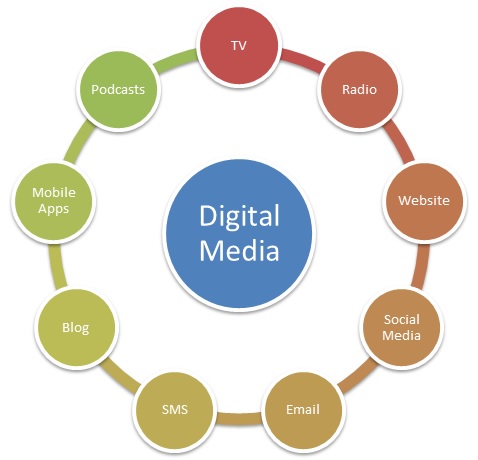
- Digital TV
Digital TVs come in a variety of designs and have distinctive features, as seen in the figure. The most recent digital technology is used in the production of high-definition TVs. Dish TV has expanded its television service to different parts of the country.

Digital Technologies Used in Daily Life
The advancement of digital technology has led to the creation of digital gadgets, which have greatly simplified human tasks. Digital technologies are useful in a variety of industries, including banking, entertainment, healthcare, and education, as the accompanying graphic illustrates. Digital technology may make life simpler, but when used carelessly or improperly, it can also cause issues.
Advantages and Disadvantages of Digital Technology on Daily Life
Along with digital technology's continued expansion comes an increase in its user base. Some of them even have the ability to change the way people live. Some benefits of digital technology are as follows:
- Digital Library:
Digital versions of textbooks and other reading materials are available in the digital library. It develops book-reading habits in people. - Online Newspapers:
Several online newspapers may be read thanks to cellphones and the internet. One internet site is www.kathmandupost.com. - Digital Payment:
Those who prefer not to carry large amounts of cash when shopping can now do so with digital payments. By scanning the QR code, money may be sent to the seller's bank account. In addition, digital payments may be used to purchase bus and airline tickets, pay taxes, and more. - Online Business:
Through the use of the internet, it may be utilized to market and sell company supplies. - Social Networks:
People now have the chance to publicly voice their opinions, thanks to social networks. Even if they are physically far apart, it links individuals digitally. - Entertainment:
With the advancement of electronic devices, there are a variety of games and music applications available for individuals to enjoy.
Digital media is directly affecting our way of life. Following are a few negative consequences of digital technology:
- Those who spend too much time online see changes in their social interactions or how they engage with others.
- Crimes committed via social media may have an impact on people's social, familial, and personal lives. A person experiences mental distress when their reputation is harmed.
- The use of physical material has decreased as a result of excessive usage of digital material. There will be lost commercial possibilities as a result of this.
- Children who don't exercise enough develop issues including obesity and frailty.
- Video games that include murder and violence have a negative impact on people's mental and social health and encourage antisocial behavior.
- When digital technology is misused, it leads to crimes like cybercrime, which hurts other individuals.
Digital Citizenship
Everyone on the globe has the equal right to use and actively engage in the internet in this day and age. Thus, it is possible to present each person as a net citizen. A netizen is a person who actively utilizes and participates in the internet. An internet citizen is referred to as a "netizen." Therefore, a netizen is a member of a globally interconnected internet. Similar to that, digital citizenship refers to a netizen's citizenship inside the online virtual community.The idea of "digital citizenship" contributes to a better internet community overall. The advancement of digital technology has enabled individuals in different parts of the world to communicate with one another via a variety of channels, including social media, the internet, and phone conversations. The idea of the "global village" was created as a result.
Characteristics of a Good Netizen
Digital citizenship also includes the responsibilities of a responsible netizen and online etiquette. Online users should act in a way that is socially acceptable. In email exchanges, public comments on social media, and other online conversations and communication, you should speak in a kind and civilized manner. One should act with dignity and respect for others when they are on the internet. Even if people do not regularly interact, they should all be treated with respect. Anything you put online stays there forever. On the internet, intellectual property is the creation of someone else. It is not legal to utilize such content without authorization. The source has to be mentioned if the content is to be used.
Online Reputation
Just as reputation is linked to people's everyday lives, reputation management is crucial for netizens in the online world. The online profile should use the person's genuine name, photo, and other information that is available to the public.
This demonstrates the veracity and legitimacy of the individual's profile. Similarly, every social media account needs to have the same username. The knowledge and skill of an individual may be shown in the posts, comments, shares, and other interactions they make on social media platforms, both in real life and online. One should exercise caution when it comes to internet security in order to control their online reputation. Inadequate privacy configurations on social media platforms increase the risk of password theft and the publication of material that damages an individual's reputation.
An organization's reputation on the internet is linked to it in addition to being personal. Status updates shared on an organization's social media sites and information published on its website are official. The number of followers on that page is a good indicator of the legitimacy of the company. Similar to this, an institution's digital reputation depends on its presence on all major websites and social media platforms. One can effectively manage their online reputation by responding to criticism and comments posted on websites and pages created by institutions.
Digital Wellbeing
Long periods of time spent online without preserving the appropriate level of physical balance can be detrimental to one's health, as seen in the figure. I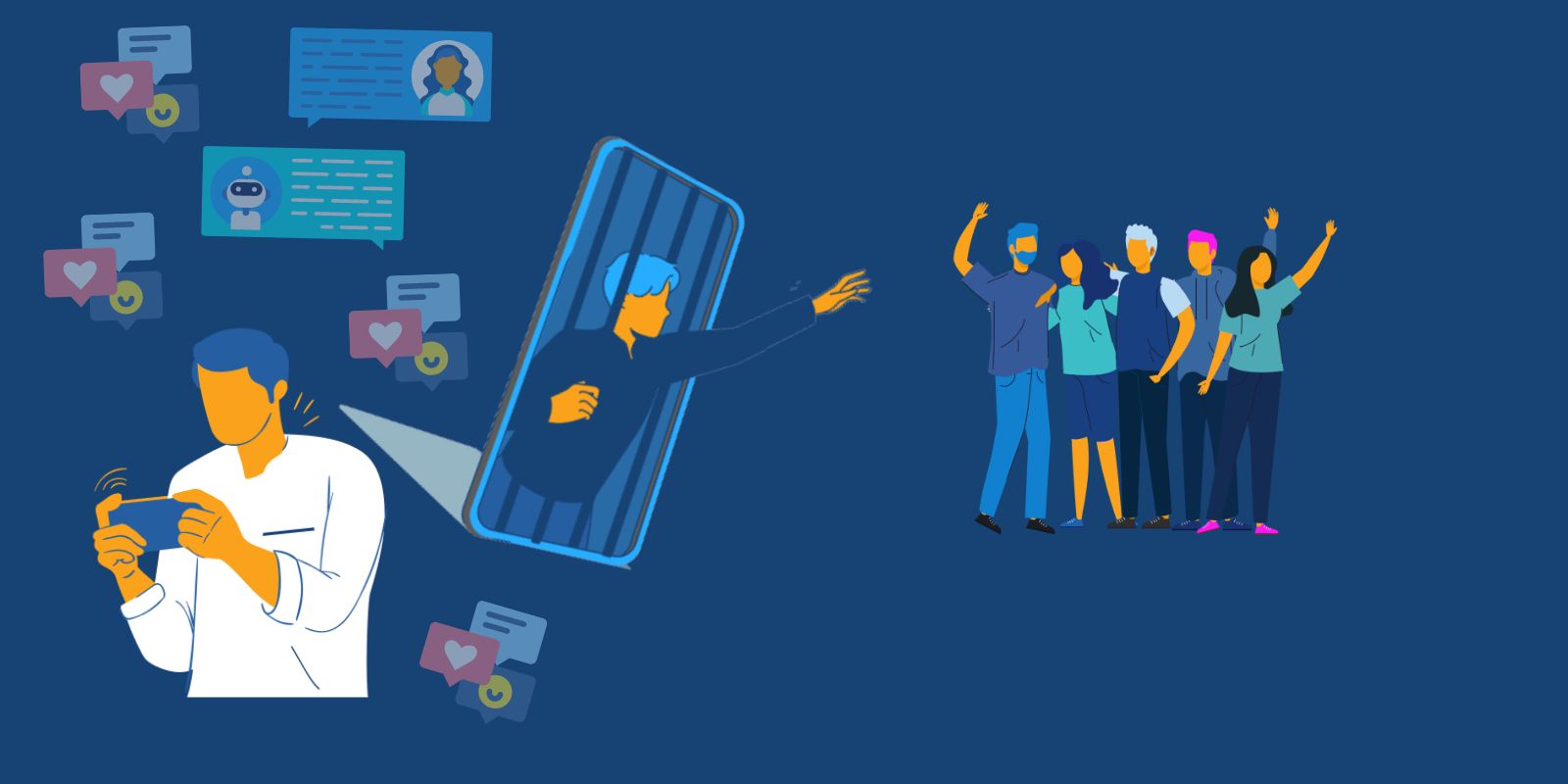 t may result in issues including emotional stress, obesity, sleeplessness, and eyesight issues. Similarly, unchecked internet use may lead to issues like aggression, social isolation, loneliness, melancholy, anxiety, dishonesty, low self-esteem, and so on.
t may result in issues including emotional stress, obesity, sleeplessness, and eyesight issues. Similarly, unchecked internet use may lead to issues like aggression, social isolation, loneliness, melancholy, anxiety, dishonesty, low self-esteem, and so on.
We apply the idea of digital health to our online lives as a result of these issues. Digital well-being is the condition of having a balanced online and offline life and being in good mental, physical, social, and emotional health. We should be mindful of our digital health and utilize technology responsibly so as not to negatively impact our general well-being when utilizing it online.
Cautions for Digital Wellbeing
Our lifestyle is disorganized due to our addiction to digital technologies. Therefore, in order to be aware of the potential consequences of using digital technology needlessly, one must possess digital well-being abilities. Cultivating habits like dividing screen time, putting time restrictions on social media usage, and turning off cellphone notifications at work can help attain digital well-being. By downloading the digital well-being app on your smartphone, you may acquire awareness of digital well-being. Applications like Microsoft Launcher, Action Dash, Digital Detox, and Beta, for instance, can be utilized. These apps assist users in minimizing their screen time.
The Internet may be used to look for educational resources. It is important to exercise caution for the sake of one's digital health when looking for and seeing that content. An example of a website where one may get information on audio-visual content connected to many themes is https://www.youtube.com/c/NCEDVirtual. Similarly, necessary audio-visual content might be recorded in order to create extra audio-visual products.
Making Audio and Audio-visual Materials
Sound may be recorded using a computer or smartphone's microphone to generate audio material. Camera recordings can also be used to produce audio-visual material. You may use a digital camera or the camera on your smartphone for this.
Video Editing
For editing the camera-captured video, a mobile application or program is required. For instance, Filmora and Adobe Premiere Pro are two computer programs that may be used to edit videos. Similar to that, a video may also be modified with the Windows video editing program found in a computer's system software.
- Video cutting
Trim the captured footage and get a little clip ready. For this, follow the procedures listed below.
To begin with, click the search bar as indicated in the figure to open the video editor. After selecting "New video project," enter the project name. Enter Class 10 ICT, for instance, then press OK.

Drag the video to the editing panel on the current project after selecting it from the computer's memory, as shown in Figure. Click the trim button after selecting the video to edit.


To choose the spot where it will be sliced, play the video. Next, split the start and finish times using two blue drag bars, as shown in the figure. After you've confirmed the required clip length, select "done" to finish.


In the editing window, choose the trimmed clip, then click "finish video" to terminate the video. Next, select Export from the window that displays. After all. Select a place on the computer where the video clip should be saved.
- Video Joining
Copy the clips cut and prepared by all your friends into a single folder. Select all the video clips to be joined and copy them to a single place on the computer. After that, open video editing software, select the required file from the computer memory and add it to the project library. Select these videos and drag them to the editing panel. As shown in the figure, select all the files to be joined in the editing panel and click on Finish Video.
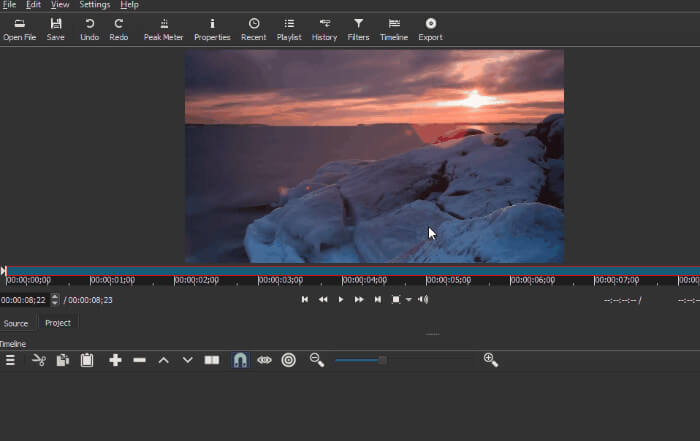
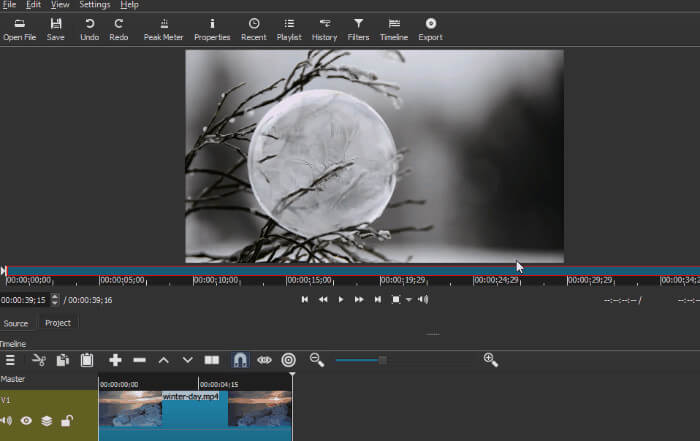
You must select where you want the file to be saved on the computer when you click on the video. In the same way that files are saved in video cutting, the video that is created by creating clips for this purpose can also be saved to the desktop.
Editing can be done on both computers and smartphones. Smartphones have a separate editing application. To edit the video recorded from the camera, it can be opened from the mobile gallery. If there is no video editing application on the phone, the required application can be downloaded from the Play Store. The application file can be installed on the mobile device by clicking on the downloaded location. Just like editing a video using computer software, an audio file can also be edited. The file extensions of the audio file are MP3, WAV, WMA, etc. If software or applications required for audio editing are not installed on the computer or smartphone, they can be downloaded and installed from the windows store, app store, etc. For example, to edit an audio file, Audacity can be downloaded from ww.audacityteam.org. Similarly, MP3 cutter software can be downloaded from any official source by using a Google search.
Things to remember
- Digital technology has made communication quick and practical and has expanded the user base in various industries.
- Benefits of digital technology include digital libraries, online newspapers, digital payments, online business, social networks, and entertainment.
- Digital technology can have negative consequences, such as changes in social interactions, mental distress, decreased physical material use, obesity, frailty, and antisocial behavior.
- Rapid communication is now possible thanks to digital communication.
- The development of digital technology has resulted in the production of electronic devices that have significantly streamlined human labor.
- Spending a lot of time online without maintaining the right amount of physical balance might be harmful to one's health.
- A good netizen should act in a socially acceptable manner, treat others with dignity, and use intellectual property responsibly.
- To achieve digital wellbeing, individuals should adopt digital well-being skills, such as dividing screen time, limiting social media usage, and turning off cellphone notifications.
- Video editing can be done on both computers and smartphones, and audio files can be edited using software like Audacity or MP3 cutter software.
© 2021 Saralmind. All Rights Reserved.

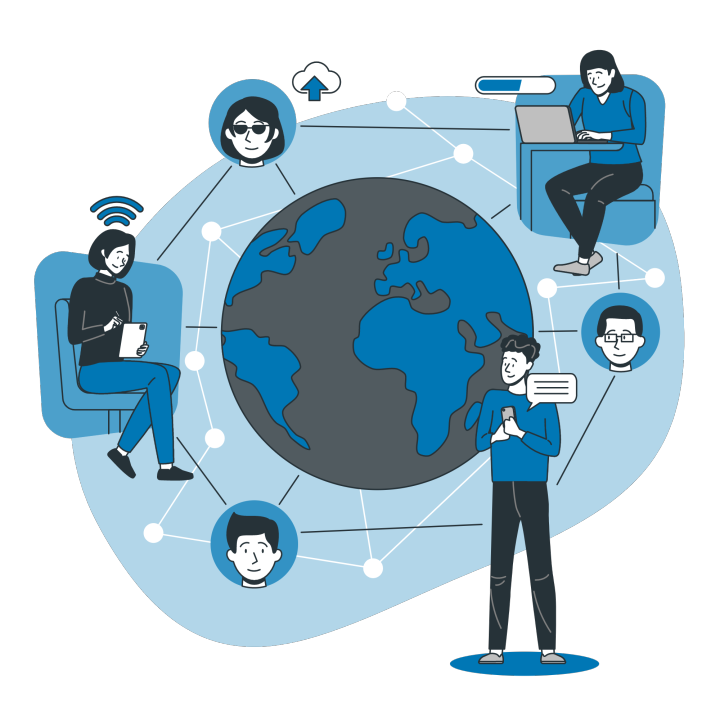


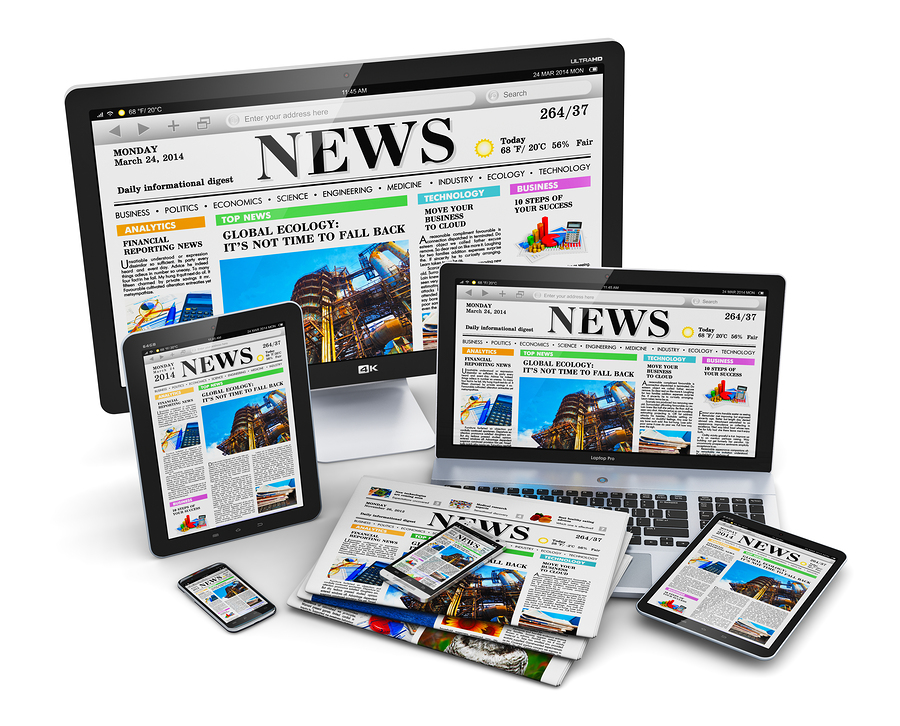

 Login with google
Login with google